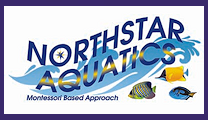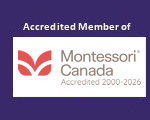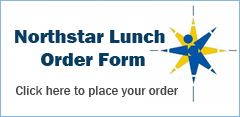In the last 10 years I have been focused on developing high-potential leaders for Executive roles. As I see my daughter Jerica progress through her fourth year Montessori program, I am truly amazed to see how similar the Montessori principles are to that of developing Executive leaders.
For starters let’s look at how the Montessori qualities link to leadership success criteria in the real world.
|
No.
|
Montessori Qualities
|
Leadership Success Criteria in the business world
|
|
1
|
Honest, Having Integrity
|
Inspires Trust
|
|
2
|
Excited about life, Happy, Loving, Self motivated
|
Passionate, Resilient
|
|
3
|
Confident, Independent
|
Has Presence, Demonstrates Courage, Thought Leader
|
|
4
|
Responsible
|
Dependable, Results Oriented
|
|
5
|
Empathetic, Compassionate, Respectful
|
Self Aware, Demonstrates Empathy, Inspires and Influences
|
|
6
|
Lifelong Learner
|
Continuous Learner, Adaptable
|
|
7
|
Giving
|
Corporate Social Responsibility
|
|
8
|
World Citizen
|
Has a Global Perspective
|
These Leadership Success Criteria are the difference that makes the difference. Simply high performance at current level does not make people ready for something bigger. Actually only 30% of high-performers have potential for the next level. These success criteria are used to assess, build and implement a personal development plan that leads to the fulfillment of one’s potential. The earlier that one develops these abilities, the better they are positioned for success personally and professionally.
So what happens in a traditional school system?
From first grade through graduate school, they offer a multitude of courses which result in increased knowledge and valuable skills. But there’s something missing in the curriculum. We don’t teach our students about life itself, about how it works or about what’s essential. Never has there been a greater need for that. You would have heard about this dilemma in books such as “What they don’t teach you at Harvard Business School”.
We need someplace other than the proverbial “school of hard knocks” to acquire the right tools for succeeding in life. We hear about the importance of good habits in school and college but don’t learn them in the classroom.
How do we assess leaders?
We provide them with on the job assignments to demonstrate these leadership criteria. Periodic talent reviews are conducted with a group of senior leaders who share their observations.
The assessment reports look quite similar to the “Montessori Elementary Progress Report”. It’s an assessment on each of the leadership criteria. The Performance rating of the employee is interesting but does not predict future success.
How do we develop leaders?
We work with each of these high-potential leaders to create a personal development plan to accelerate their development and build their leadership abilities. Let’s look at how the structure of this plan compares with the Montessori program.
|
Development Elements for Leaders
|
Development at Montessori
|
|
70% on the job experiences, stretch assignments and projects
|
Quite similar to the Montessori Methodology of learning by doing, research and projects.
|
|
20% Mentoring, Coaching and Networking
|
The Teacher is a guide, coach and a mentor. Also having three levels in one classroom supports the learning
|
|
10% Training
|
Instruction
|
Again their progress is measured by the new experiences they have gained, critical thinking skills, relationships developed, and their ability to inspire and lead people.
When I look at Jerica’s development plan, I feel very satisfied that it is balanced, practical and focused on developing her potential. In addition to the core curriculum it includes: Public Speaking, Chess, Environmental Project, French, Music, Computers, Physical Education, Cultural Programs, Arts, Skating, Skiing, Swimming etc.
Success is more than just grades…
Over the last 15 years I have seen that most of the folks who had the highest grades in school are not the highest achievers in the real world. People who are just technically strong or deliver strong numbers are often challenged to operate “outside the box” and engage people. But none the less often these folks get promoted and by default they continue to operate from a position of “what they know best”. So what we have is a systemic issue which results in a leadership crisis. Ninety percent of our potential is not only untapped and unused, but also undiscovered.
It’s the people who inspire us with their level of excellence, are the ones who have harnessed their potential and passion.
So what children need to grow up balanced, happy and fulfilled is an environment that:
- Stimulates their creative minds and explores their passion and potential
- Focuses on character building and develops their thinking through application
- Guides them through an individualized approach instead of a “one size fits all – short term results focused” system
So as parents my wife Vini and I would like to give our children Jerica and Nathaniel the best chance they can have to be the persons that they are meant to be. We feel confident with the Montessori Program at Northstar as it is continuously evolving. It provides a platform for creating a strong foundation to build on. Jerica has been at Northstar for 2 years and Nathaniel will be joining next school year. We believe that this is the best investment that we have made.
Sincerely,
Guilherme Dias* **
* 2009 HR Summit Award Winner - for the Toronto Star newspaper clipping, please click here.
** Biography of Guilherme Dias
Guilherme Dias is currently the Director of Strategic Talent Management at Pitney Bowes Canada. He is responsible for High-Potential Leadership Development, Succession Planning, Action Learning Strategies, Coaching and Diversity. He also leads global talent management initiatives for Pitney Bowes Inc.
He is the recipient of the 2009 Overall Talent Management Award by the Human Resources Professional Association in Canada. He is also the 2008 global Pitney Bowes Impact award for his work in Strategic Talent Management.
His prior roles include heading up leadership development atWal-Mart Canada and HR Leader for Morgan Stanley India. In 2009 he was the recipient of the “HR Manager of the Year” award at the Asia Pacific HR Conference.
Guilherme’s leadership development work has resulted into accelerated development and appointments of Senior Executives at Morgan Stanley, Wal-Mart, and Pitney Bowes. He is on the Advisory Committee of the government funded Peel Region Immigration Council.
Speaking Engagements Completed
- The Value of Leadership – Pitney Bowes Canada Managers Kick Off Conference, January 08
- Personal Development Planning for the Journey Ahead – Wal-Mart High Potential Leadership Conference, July 2006
- Recruiting to Build Organizational Capacity – Recruiters Conference, September 08
- Personal Leadership Retreat for members of Presidents of Enterprising Organizations, June 08
- The Effectiveness of Succession Management at the Recruitment & Retention Metrics Conference, April 08
- Leaders Building Leaders Workshop for Digital Cement Leadership Team, January 09
- Assessing and Building Your Personal Leadership Capacity – Retail Trade Advantage Breakfast Seminar, January 2009





 [Click here for Hot Meals and Milk Order Form]
[Click here for Hot Meals and Milk Order Form]



